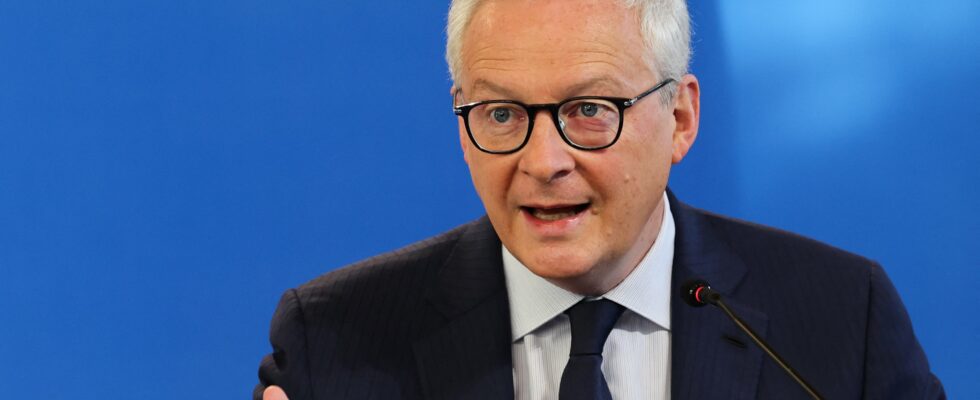How long time must seem to Bruno Le Maire. Of the ministers who have resigned, he is the only one who still has to answer for his actions. Even more so since Gabriel Attal handed over power to Michel Barnier as Prime Minister. While waiting for his successor, the Bercy tenant remains the preferred interlocutor when the burning issue of public finance management must be debated. A prolonged interim that looks like a long ordeal.
And for good reason, the situation is critical. France’s accounts could turn scarlet by the end of the year if new savings are not found. According to a recent note from the Directorate General of Public Finances, the public deficit could widen to 5.6% of GDP, instead of the 5.1% forecast in the stability program sent to Brussels last April. The fault lies in potentially lower-than-expected tax revenues and a possible drift in local government finances.
This difficult return to normal
Auditioned for the thirty-fifth and final time in seven years, Monday, September 9, by the Finance Committee, the Minister of the Economy once again defended his record, insisting on known and repeated facts: cumulative French growth higher than that of Germany, Italy or the United Kingdom, reindustrialization underway, record foreign investment or even the significant drop in unemployment… Recalling that the successive crises of the yellow vests, Covid and energy required strong responses, he assumed responsibility for his choices. “If I had to do it again, I would do it again without hesitation.”
Soon freed from the weight of responsibility, Bruno Le Maire acknowledged that this final oral examination gave him “immense freedom and a lot of serenity”. He took the opportunity to express a certain number of regrets. First by emphasizing France’s inability to return “to normal”. “Once we have spent, we do not know how to return to normal and save”. A reference to the end of the “whatever it costs” approach, which took much longer than in other European countries.
From the episode of the decree cancelling 10 billion euros of credits decided last February, following a forecasting error, Bruno Le Maire has a bitter memory. That of not having been able to opt for a draft amending finance bill (PLFR) which would have been a “much more democratic and above all much more effective” solution. At the time, tensions with Emmanuel Macron, who was opposed to this solution, had weakened his position. Bruno Le Maire is not giving up: he believes that there is still time to implement a PLFR.
Advocacy for communities
The recommendation does not bind anyone. “These choices are not mine. It is only a question of political choice.” His own line, the holder of the record for longevity at Bercy seems never to have been able to impose it. “The economy is difficult, spending is always easy. We must succeed in reversing things and not put off until tomorrow what we can do today,” he declared. Like a message in a bottle, he also recommends giving more freedom to local authorities and quickly convening the high council of local public finances, which he helped to launch.
“When they are forced to increase the index point, even though they have no say in the remuneration of civil servants, I understand that they complain that they do not have enough freedom. When constraints are systematically added to them that have a cost and that they do not have the means to implement, I understand that they may ask themselves questions about the proper management of public finances,” pointed out Bruno Le Maire. Astonishing plea in favor of local authorities, they who had on the contrary been vilified a few days ago by Bercy for the drift of their deficit…
.
